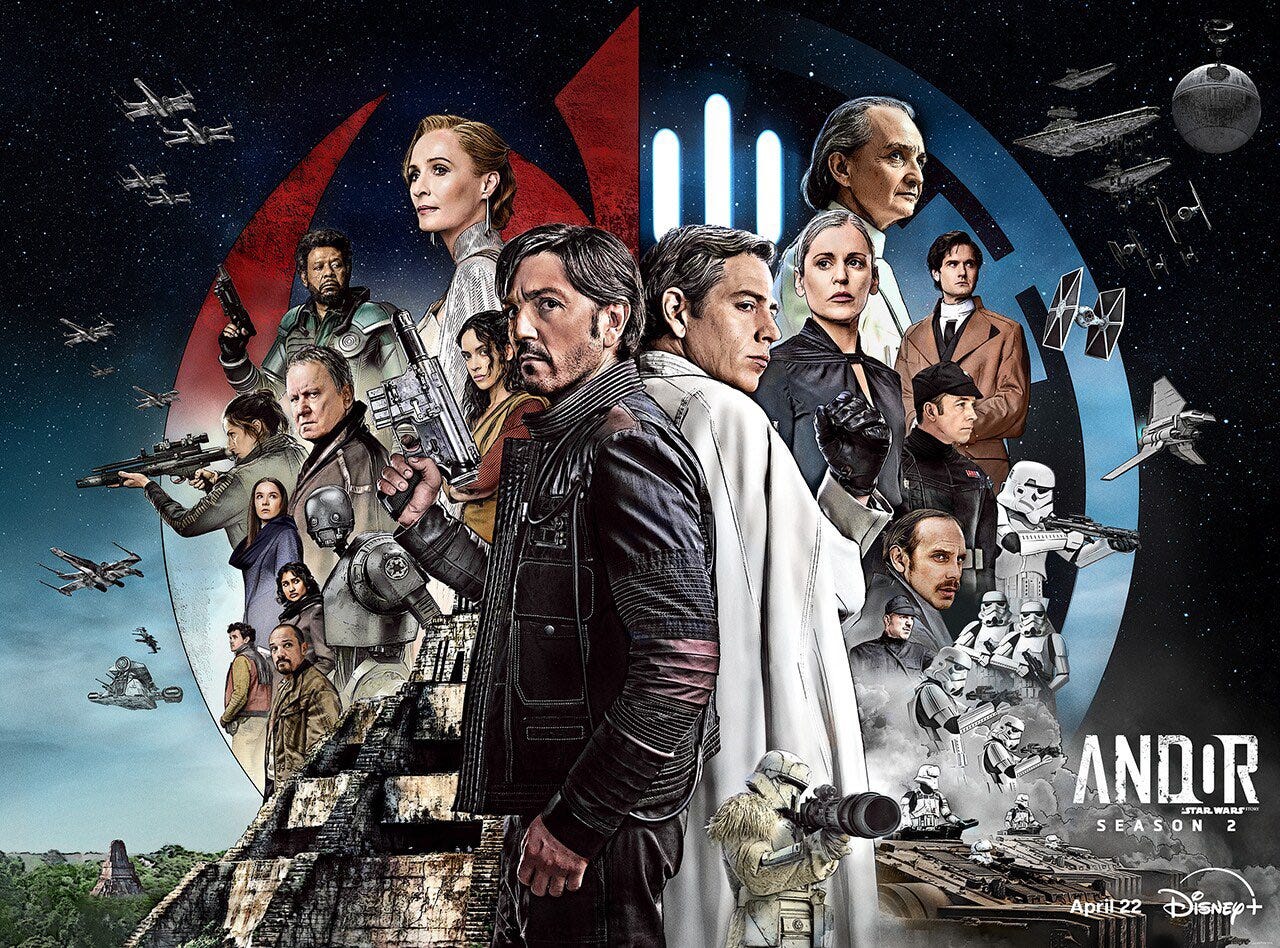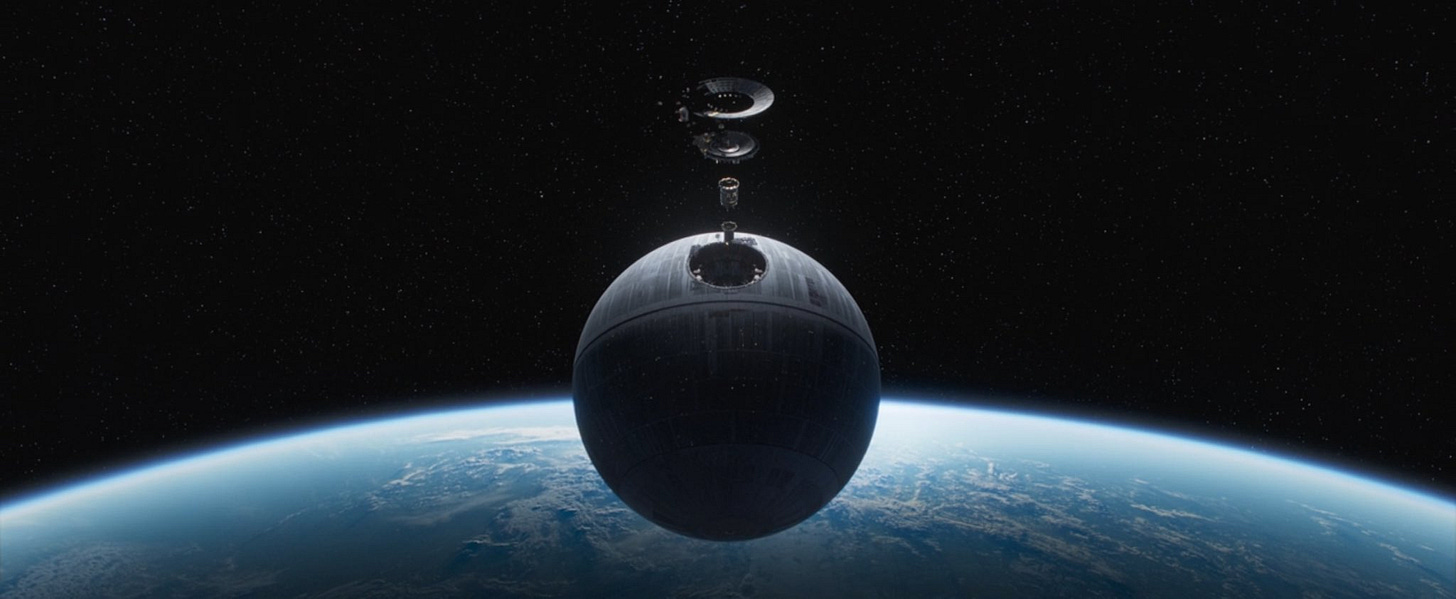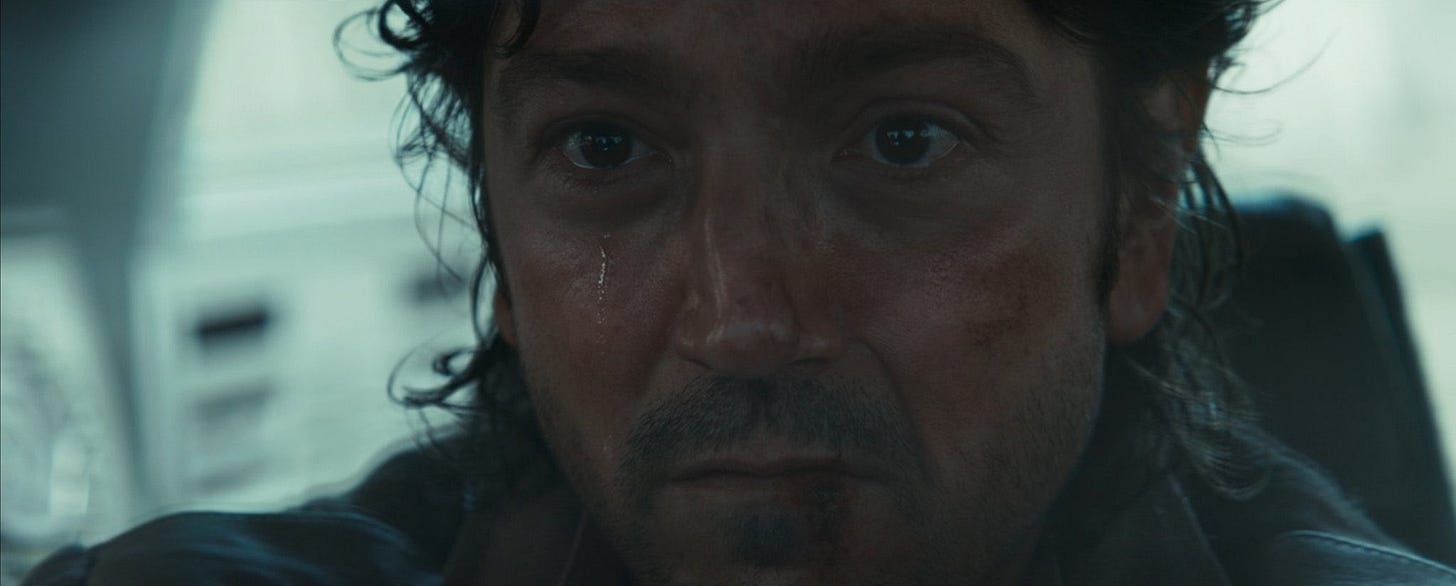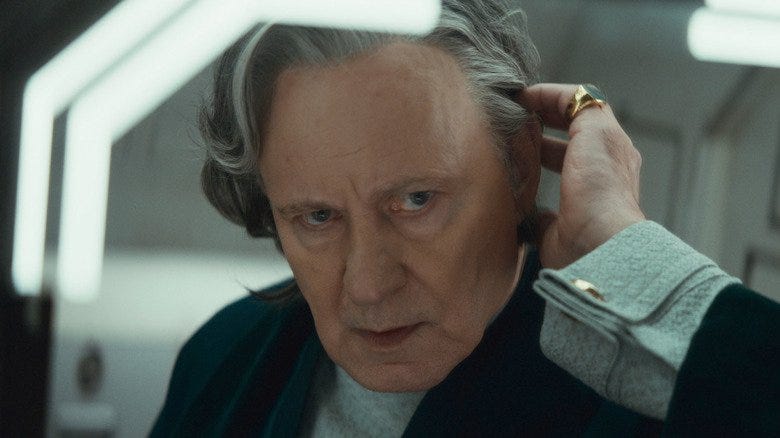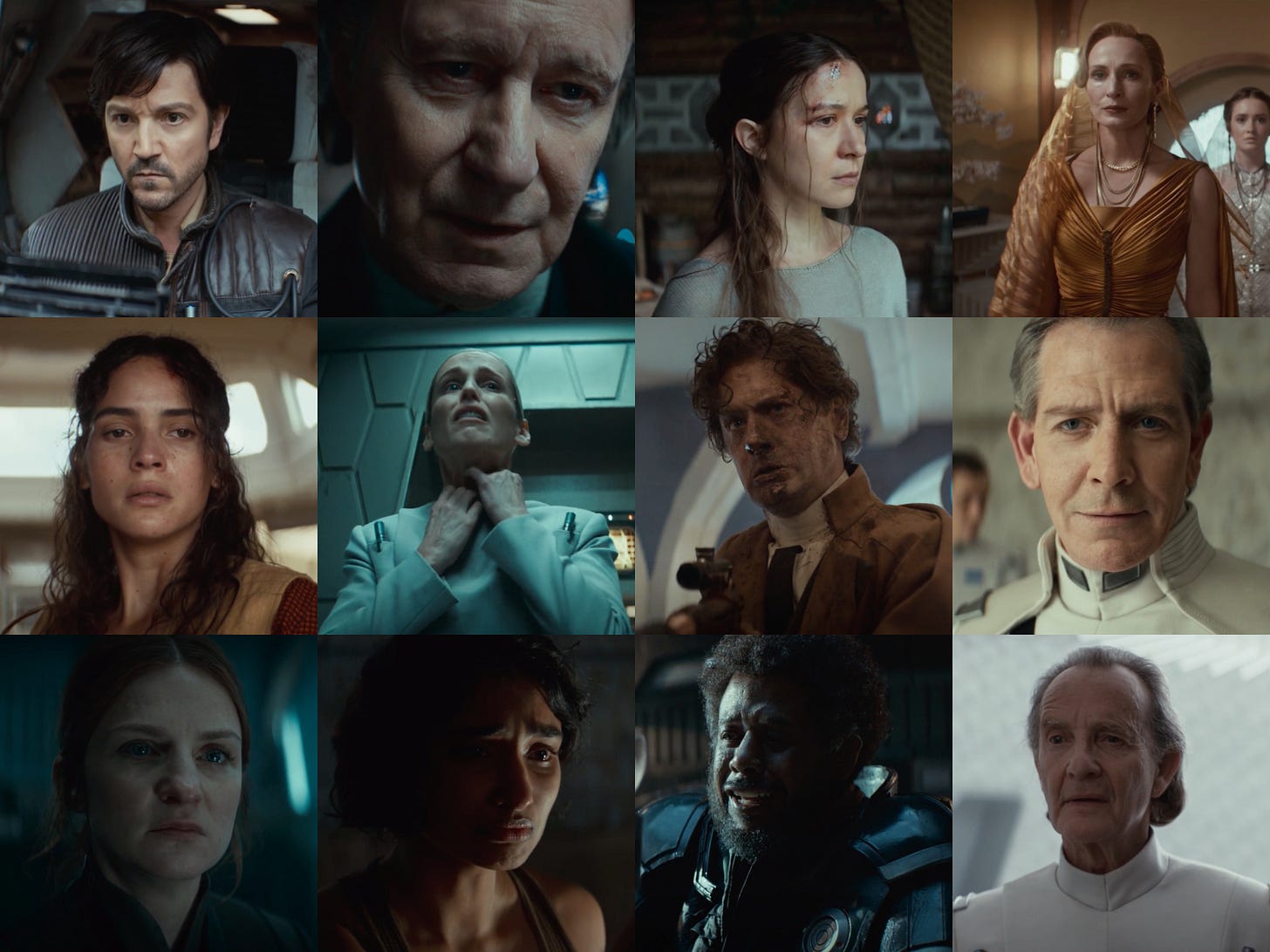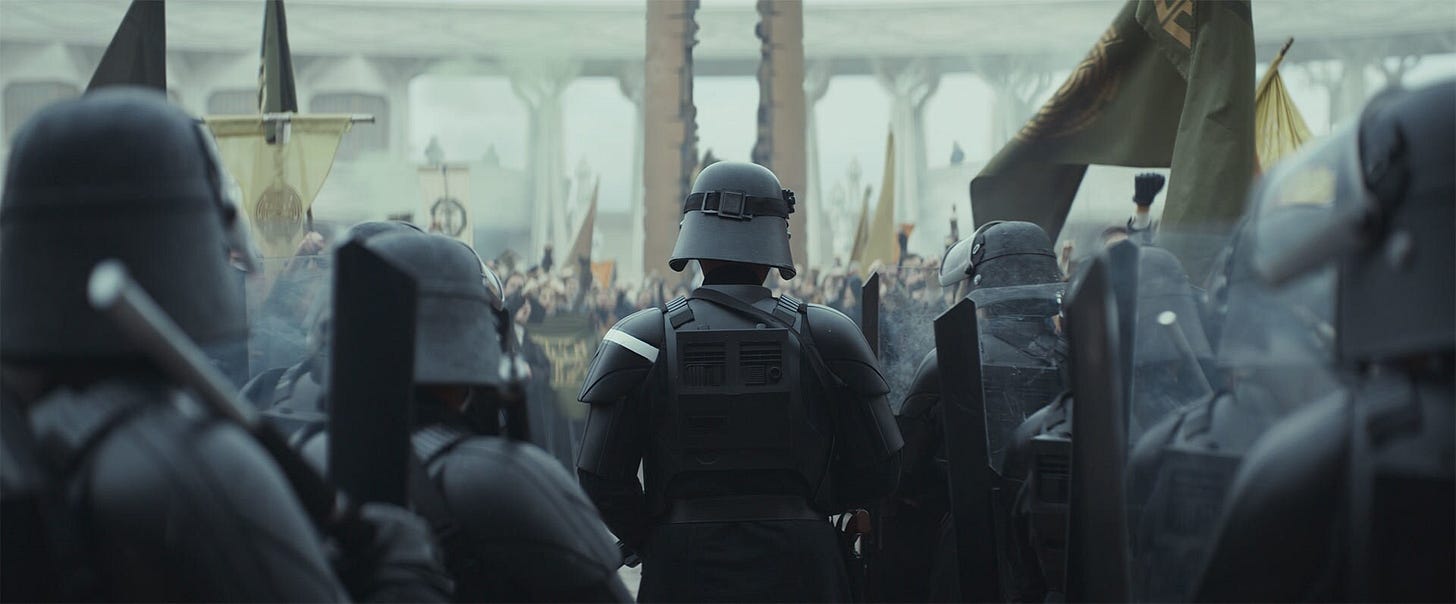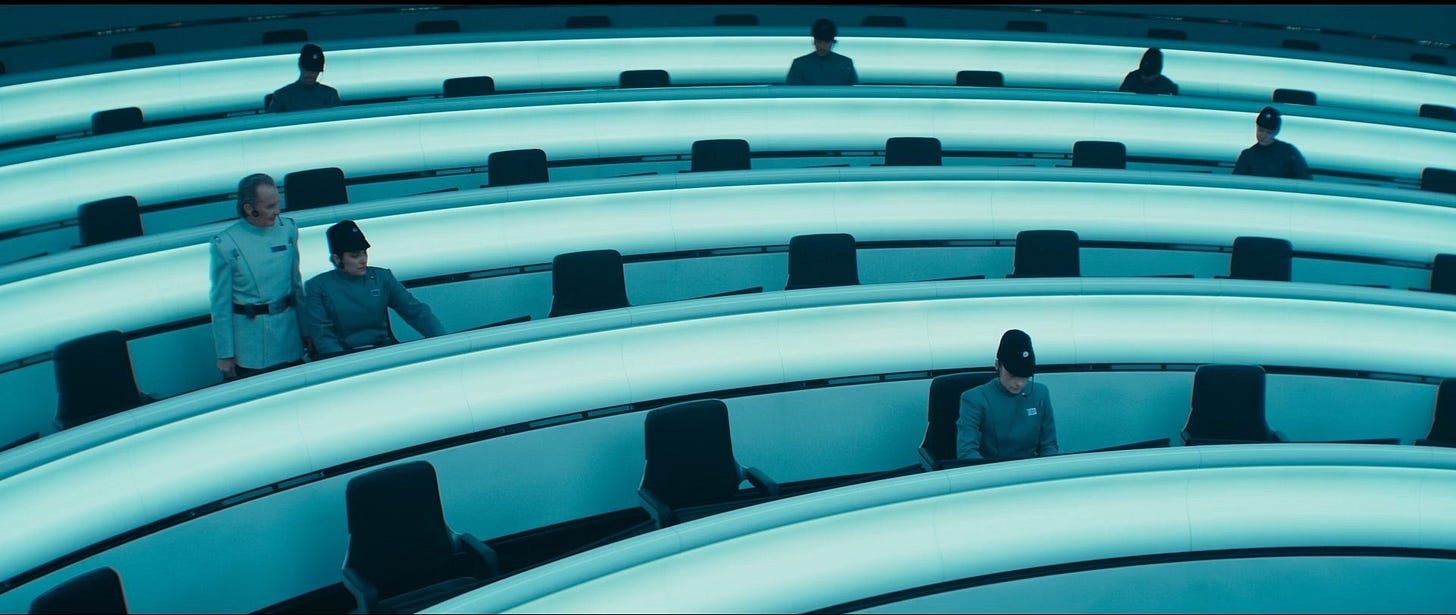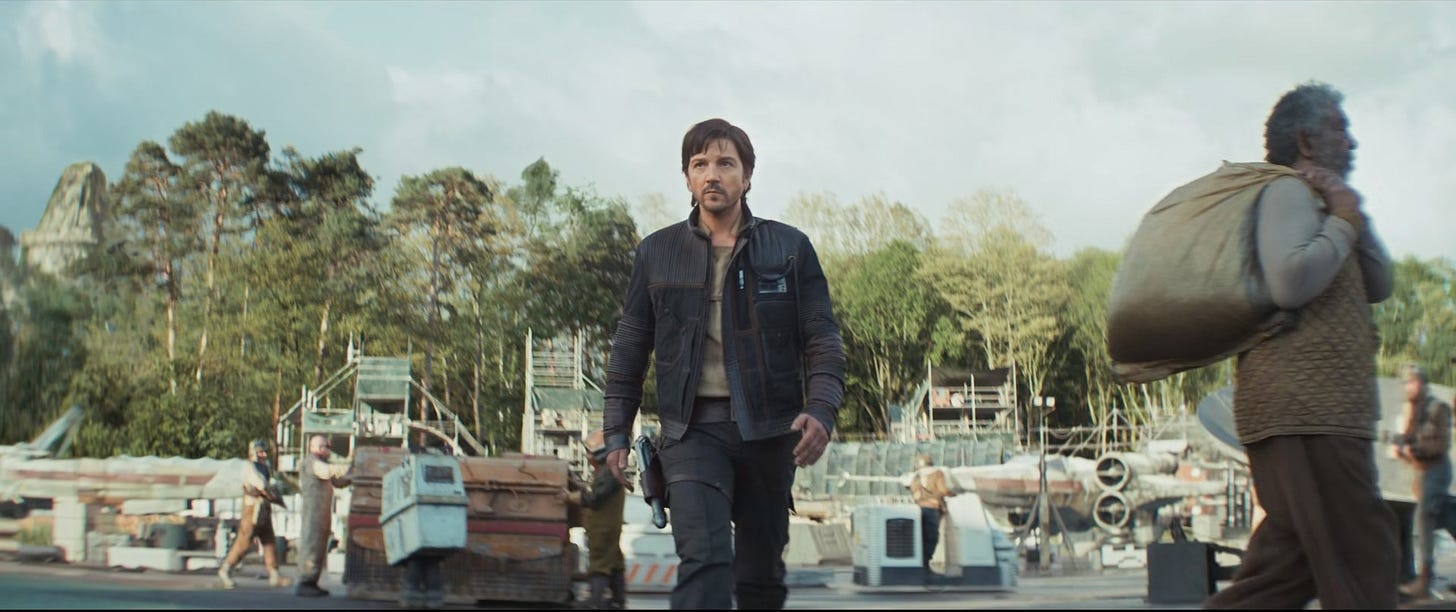Andor Season 2 Review: Star Wars’ Boldest and Most Human Story Yet
Why Andor succeeds where most franchise stories fail.
In 2018, when Andor was first announced, my first thought was “Who asked for a spin-off show about a one-off character from a spin-off Star Wars movie?”
It did not help that Star Wars was on a steady cultural and financial decline (The Last Jedi, Solo: A Star Wars Story, etc.)
Today, it’s 2025. I’ve finished Andor’s second and final season, and it is not only the best Star Wars thing I have ever watched… It may be one of the best pieces of fiction I’ve ever consumed.
For as good as Andor is, I did not want to write this review for 2 reasons:
I have a weird rule. If a movie or show is basically perfect (acting, writing, cinematography, music, editing), I usually don’t review it, I just mentally file it in my “masterpiece” list with stuff like Arcane S1, Game of Thrones S1-5, Mad Max: Fury Road, and Mission: Impossible – Fallout.
I have way too much to say. I wasn’t sure how to structure all my thoughts into something coherent.
But after finishing those final three episodes... I can’t stay silent. I have to put into words what makes Andor a genuine masterpiece.
So, What Is Andor?
Andor is a political spy thriller created by Tony Gilroy (Michael Clayton, The Bourne Ultimatum), set in the Star Wars universe. It serves as a prequel to Rogue One, following Cassian Andor (Diego Luna), a disillusioned thief who evolves into a key figure in the Rebel Alliance.
Through Cassian, the series explores the rise of rebellion against the Empire, highlighting the moral complexities and personal sacrifices of both parties. No Jedi, no Skywalkers, just regular people in a galaxy far, far away.
Season 2 increases its exploration of the psychological and emotional toll of resistance. Cassian's journey becomes more complex as he navigates espionage, betrayal, and the weight of his past actions.
The season also goes deeper into the inner workings of the Empire and the growing Rebel Alliance, portraying the blurred lines between heroism and villainy.
A Unique Narrative Structure
Similar to the first season, Season 2 is 12 episodes, structured as four self-contained 3-episode arcs, with each arc taking place a year after the previous one.
Think of it as four Star Wars movies. This unique format allows for a comprehensive examination and evolution of the many different characters and plot points, as the stakes of the rebellion keep escalating. It’s an incredibly efficient storytelling structure, allowing each arc to breathe, develop, and hit hard when it needs to.
In season 1, the 3-episode arcs were each contained to tell a specific story while still connecting to a greater narrative. In season 2, each arc, while still contained, is much more connected, as the plot ramps up from covert and political operations to the Star Wars we have come to know.
Diego Luna Becomes Cassian
Just like how the plot of Andor is pinned on the story of its titular character, much of the show is placed on the performance of its lead actor, Diego Luna, and he delivers a career-defining one. In what I can only imagine as a mix of talent, dedication, and a deep understanding of Cassian’s character after playing him for almost a decade, Diego does not just portray Cassian. In some ways, he becomes him.
His performance is intimate, subtle, and deeply human. It draws you completely into the story. You feel every emotion, every doubt, every added layer of complexity that leads to the character we meet in Rogue One. Through his growth, we get to see how a person can go from living for survival to embracing a vision far beyond oneself.
The Most Complex Character in Star Wars History
This title goes to Luthen Rael, played with staggering depth by Stellan Skarsgård.
A rebel spymaster posing as a wealthy antique dealer on Coruscant, Luthen stands as a testament to the complexities of rebellion. While regular Star Wars paints the rebellion as entirely good, Luthen represents the mindset that to change an oppressive system, some hard and morally bankrupt sacrifices must be made.
Skarsgård brings this character to life, portraying a man leading a double life and having to bear the consequences of the countless sacrifices made in the name of the greater good. Season 2 especially focuses on the psychological toll of his 2 lives and his coming to terms with the reckoning that awaits him as all his plans fall into place and his enemies draw ever closer.
No Small Roles, Only Sharp Performances
In any other show, the performances of Diego Luna and Stellan Skarsgård would be clear standouts, but here, they are one of many.
Almost every single character is extremely well acted, from other main characters like Mon Mothma (Genevieve O’Reilly), A high-ranking senator waging a silent war from within the system, or Syril Karn (Kyle Soller), a true believing bureaucratic cog who believes he is fighting for justice, to minor characters like Carro Rylanz (Richard Sammel), a silk merchant turned pacifist rebel leader who has to watch his people be manipulated into violence and destruction.
There are no throwaway characters in Andor. Every one of them feels lived-in, fully dimensional, and necessary.
Politics, Poetry, and Pain
As fantastic as the acting is, what makes Andor truly special is the strength of its writing. Tony Gilroy and his team don’t just tell a story about revolution; they craft a multi-layered political thriller where you feel and think about the weight of rebellion, how it contradicts itself, and the terrible cost it carries.
Every single plot line, dialogue, and character motivation is smartly and tightly written, fully expecting the audience to keep up. Unlike most modern-day franchises, there are no chosen ones, no heroic last stands. Characters die without buildup, great sacrifices go unrecognised, and victories are bittersweet.
This story is no grand tale of David vs. Goliath. It is the grounded reality of what it takes for a small group of hopeful underdogs to stand up to an oppressive, overwhelming force.
A Galaxy That Looks a Lot Like Our World
Andor may be from a galaxy far, far away, but too many times it feels like it is just outside my window. The show’s depiction of authoritarianism, propaganda, bureaucracy, and systemic oppression often touches on our real-world issues.
It transforms the Empire from this large evil force to a bureaucracy where bureaucrats and functionaries carry out galaxy-wide oppression through mundane tasks. This depicts how systemic injustice often operates through ordinary individuals complicit in maintaining the status quo.
In one of its best arcs, the story involves the Empire’s exploitation of the planet Ghorman. With its desire to extract natural resources from the planet, the Empire engages in a multi-year propaganda campaign to demonise the people living on Ghorman. This eventually culminates in an event where the Empire orchestrates a a peaceful protest into a brutal massacre.
This story echoes many real-life instances of state-sponsored propaganda; post-9/11 Islamophobia in the U.S., China’s treatment of Uyghur Muslims, or Israel’s current disinformation campaigns against Palestinians.
The Ghorman Massacre, in particular, reminded me of the 2020 Lekki Toll Gate shooting, where the Nigerian military opened fire into a crowd of peaceful protesters. People from different countries with similar events of state-sponsored violence have also talked about how the episode closely mirrors their versions.
These are just two examples of how Andor comments on our real world. There are so many other themes the show explores, including:
How colonialism displaces and suppresses indigenous populations and their cultures.
How authoritarian systems perpetuate wealth gaps to maintain power.
The dehumanising aspects of the prison system.
How systemic injustices can catalyse resistance movements.
How administrative systems enforces conformity and suppresses individuality, even at the cost of productivity.
Crafted, Not Manufactured
Andor’s storytelling is further amplified by its remarkable technical achievements. Opting to marry practical sets and effects with CGI over full virtual production, the show constructs immersive environments like the city of Ferrix, the Ghorman Square, the Imperial Senate Building, or the Yavin-4 base (just to name a few). The cinematography, utilising large-format digital cameras, creates a cinematic quality that distinguishes it from other entries in the franchise.

Nicholas Britell's innovative score, blending electronic music with orchestral elements, further enhances the series' unique tone.
Here’s a fun fact about Andor Season 2: For the planet Ghorman, they created an entirely new language, using French as a base. To maintain the authenticity of the story, they intentionally cast only French speaking actors to play the Ghormans.
These deliberate choices in writing, acting, production design, visual storytelling, music, and even casting coalesce to create a series that not only stands as a pinnacle of Star Wars storytelling but also as a landmark in contemporary television.
This Rebellion Was Televised
By ignoring its franchise's traditional elements like Jedi and lightsabers, the series delivers a grounded, emotionally resonant narrative that mirrors real-world struggles against oppression.
Andor Season 2 doesn't just conclude a story, it redefines what's possible for franchise storytelling. It proves that these type of stories can be thematically ambitious, introspective, politically charged, and artistically rigorous, all at once.
⭐️ Rating: 10/10
✅ Andor is for you if…
You enjoy slow-burn storytelling with rich character development.
You're into political thrillers, espionage, and moral ambiguity.
You appreciate smart, tightly written dialogue and layered plots.
You prefer grounded sci-fi over fantasy elements like Jedi and magic.
You want to see rebellion and resistance explored in a realistic, mature way.
You value shows that reflect real-world systems and power structures.
You're tired of fan service and want something bold and original from your franchise storytelling.
❌ Andor might not be for you if…
You prefer fast-paced, action-heavy shows with constant spectacle.
You're here for lightsabers, Jedi, and classic Star Wars lore.
You dislike political or socially conscious storytelling in your entertainment.
You prefer simple good vs. evil narratives without moral grey areas.
You want something light, nostalgic, or easy to watch in the background.
You’re expecting traditional Star Wars fun, humor, or familiar characters.





